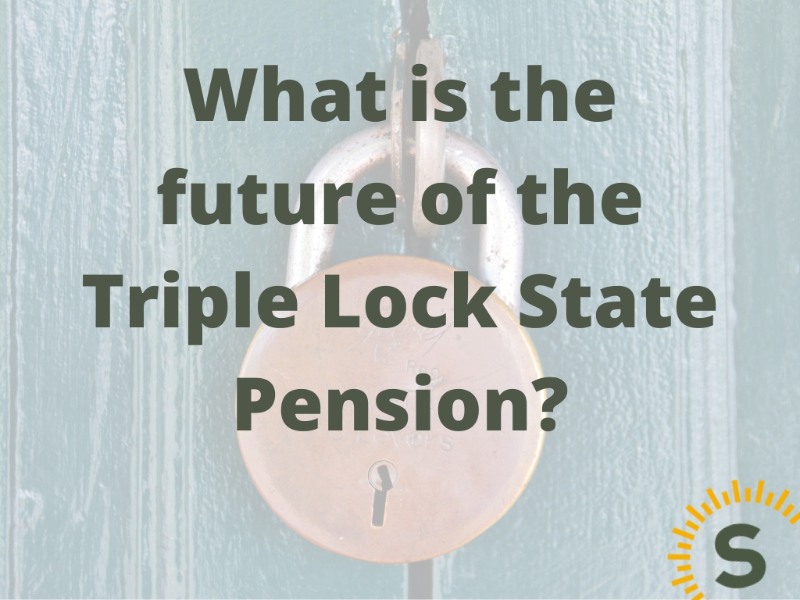
Retirement is a significant milestone in one's life, and ensuring financial security during this period is crucial. In the United Kingdom, the state pension plays a vital role in providing income for retirees.
Over the years, the state pension has been subject to the "triple lock" policy, which guarantees an annual increase based on the highest of average earnings growth, inflation, or 2.5%. However, recent discussions have raised questions about the sustainability and fairness of this policy.
State pensions are set for a substantial 8.5 percent increase as a result of the triple lock mechanism. The new state pension is due to rise by £900 to £11,500.
In this insight, we will explore the future of the triple lock, its implications for retirees and the government, and potential alternatives to ensure retirement income security.
The triple lock policy was introduced in 2011 as a means to protect pensioners from the risk of falling behind in income relative to the working population. It aimed to ensure that the state pension kept pace with rising living costs. Under the policy, the state pension increases annually by the highest of three factors: average earnings growth, inflation, or 2.5%.
In recent years, the triple lock has led to significant increases in the state pension. For example, in 2022, the state pension rose by a staggering 10.1% due to high inflation rates. This increase provided much-needed relief to pensioners but also raised concerns about the long-term sustainability of the policy.
The triple lock's future hinges on the upcoming official earnings growth announcement from the Office for National Statistics (ONS). If the figures reveal substantial wage growth, it could trigger another significant increase in the state pension in 2024. However, this prospect raises questions about the financial implications for the government and potential intergenerational fairness.
Advocates for the triple lock argue that it is a vital tool for protecting the retirement income of vulnerable groups, such as those who rely solely on the state pension. Organisations like the older people's charity Independent Age highlight the importance of the triple lock in safeguarding the value of the state pension and enabling pensioners to cope with rising living costs.
Critics of the triple lock argue that the policy's costs have become increasingly unsustainable. The Institute for Fiscal Studies (IFS) estimates that the triple lock could add up to £45 billion annually to the welfare bill by 2050. This burden on public finances raises concerns about intergenerational fairness, as working-age individuals may face higher taxes or reduced benefits to fund the state pension increases.
The rising costs associated with the triple lock may necessitate changes to the minimum retirement age. Former Conservative leader William Hague has suggested that maintaining the triple lock without substantial reforms could lead to large tax increases or benefit reductions for working-age families. This uncertainty surrounding retirement planning makes it challenging for individuals to effectively save for their future.
To address the volatility and uncertainty associated with the triple lock, some experts suggest exploring smoothed earnings and inflation measures. These measures would provide a more stable basis for determining annual increases in the state pension, ensuring a fair balance between retirees' needs and the government's fiscal responsibilities.
Another proposal to address the triple lock's challenges is the establishment of a cross-party consensus on state pension policy. By conducting an independent review after the next election, policymakers could work towards developing a sustainable and equitable framework for state pension increases. This approach would foster stability and long-term planning for retirement.
A more gradual phasing out of the triple lock could also be considered. This approach would involve a transition period where the triple lock gradually gives way to a different mechanism for determining state pension increases. This would allow for a smoother adjustment and minimise potential shocks to retirees' income.
The future of the triple lock remains uncertain, as policymakers grapple with the challenges of ensuring retirement income security while maintaining fiscal responsibility. What we do know is that from April, state pensions are set for a substantial 8.5 percent increase as a result of the triple lock mechanism. The new state pension is due to rise £900 to £11,500.

While the triple lock has provided significant increases in the state pension, its sustainability and intergenerational fairness have come under scrutiny. Exploring alternative mechanisms, such as smoothed earnings and inflation measures, cross-party consensus, or a gradual phasing out, may offer more balanced solutions. Ultimately, striking a balance between retirees' financial well-being and the government's fiscal obligations is paramount to secure a sustainable future for retirement income in the United Kingdom.

Stuart is an expert in Property, Money, Banking & Finance, having worked in retail and investment banking for 10+ years before founding Sunny Avenue. Stuart has spent his career studying finance. He holds qualifications in financial studies, mortgage advice & practice, banking operations, dealing & financial markets, derivatives, securities & investments.





Our website offers information about financial products such as investing, savings, equity release, mortgages, and insurance. None of the information on Sunny Avenue constitutes personal advice. Sunny Avenue does not offer any of these services directly and we only act as a directory service to connect you to the experts. If you require further information to proceed you will need to request advice, for example from the financial advisers listed. If you decide to invest, read the important investment notes provided first, decide how to proceed on your own basis, and remember that investments can go up and down in value, so you could get back less than you put in.
Think carefully before securing debts against your home. A mortgage is a loan secured on your home, which you could lose if you do not keep up your mortgage payments. Check that any mortgage will meet your needs if you want to move or sell your home or you want your family to inherit it. If you are in any doubt, seek independent advice.